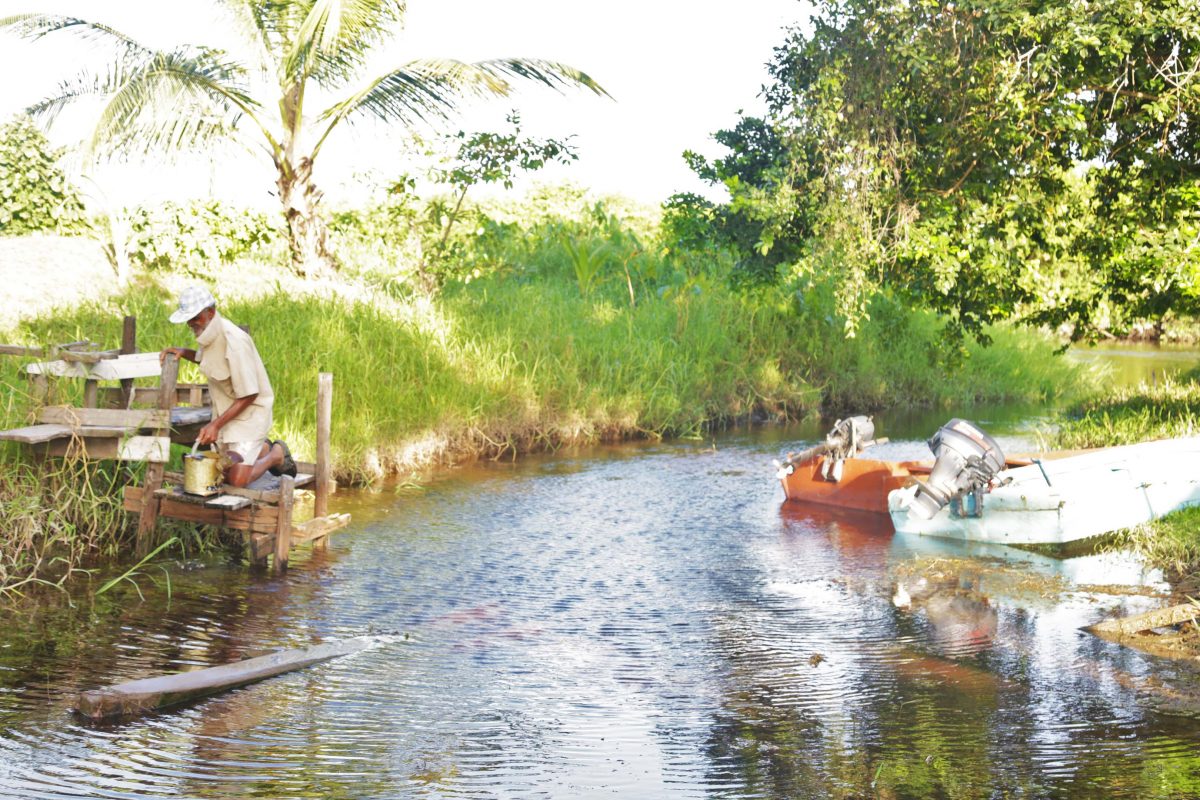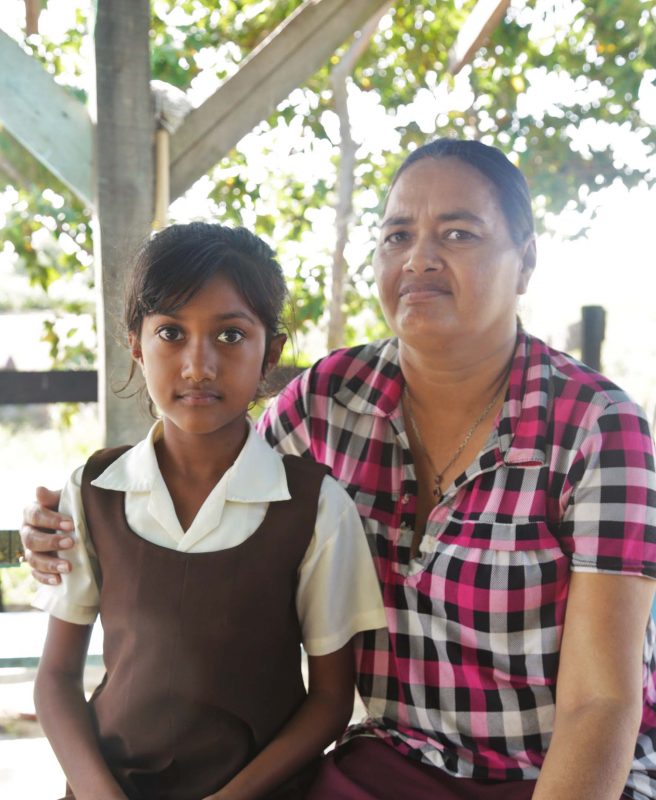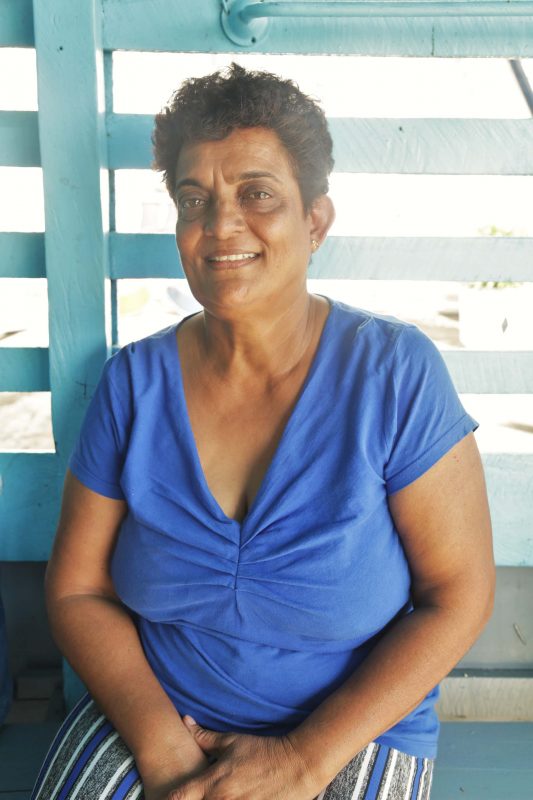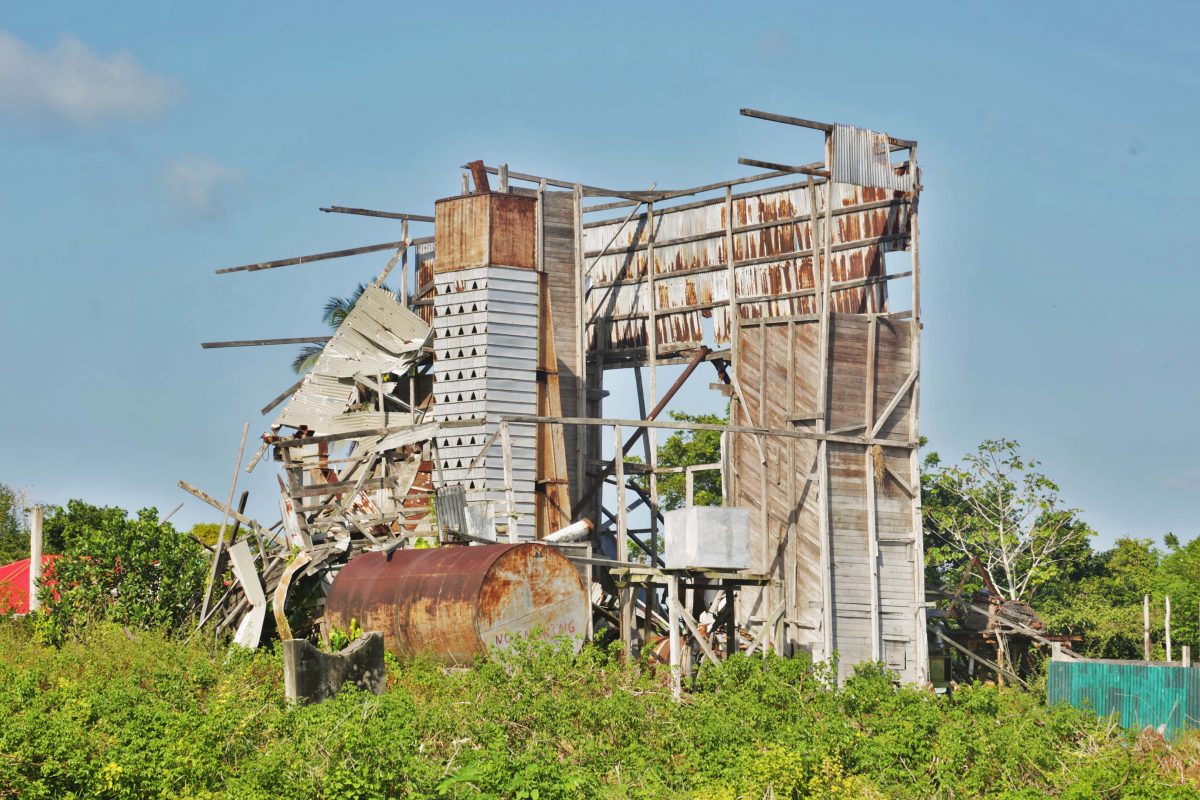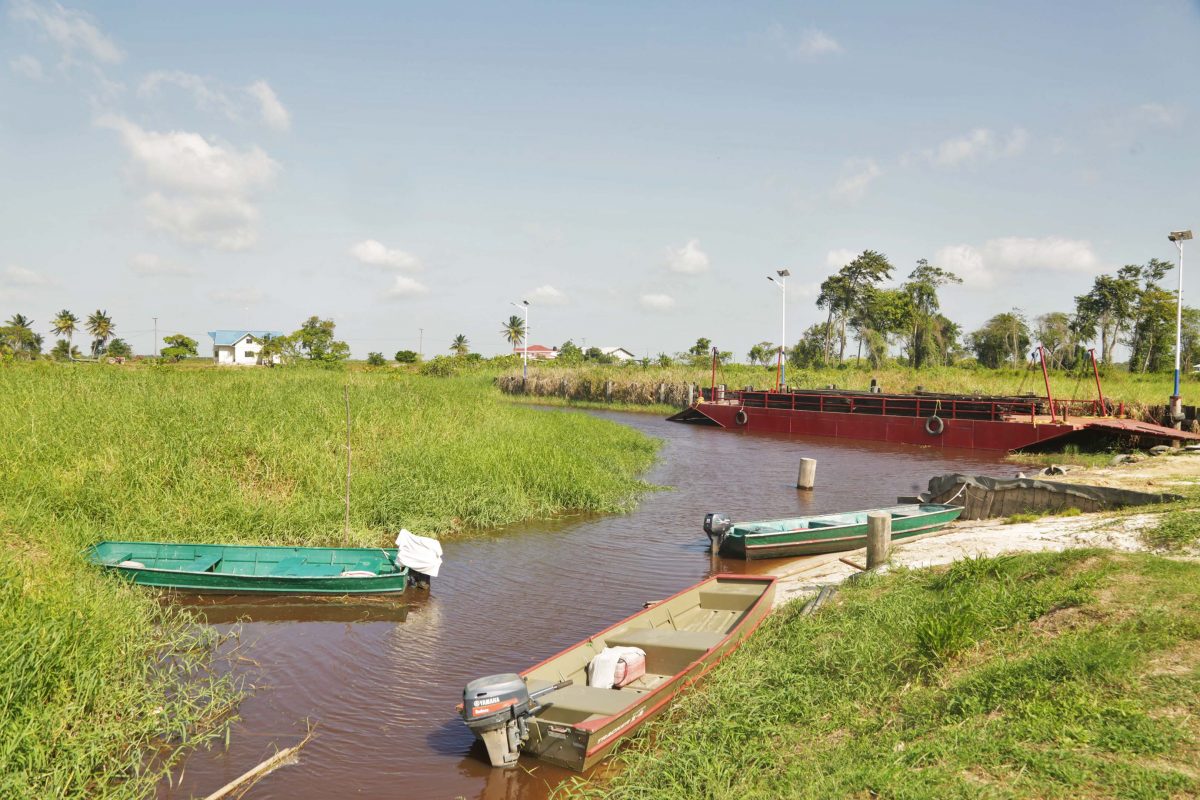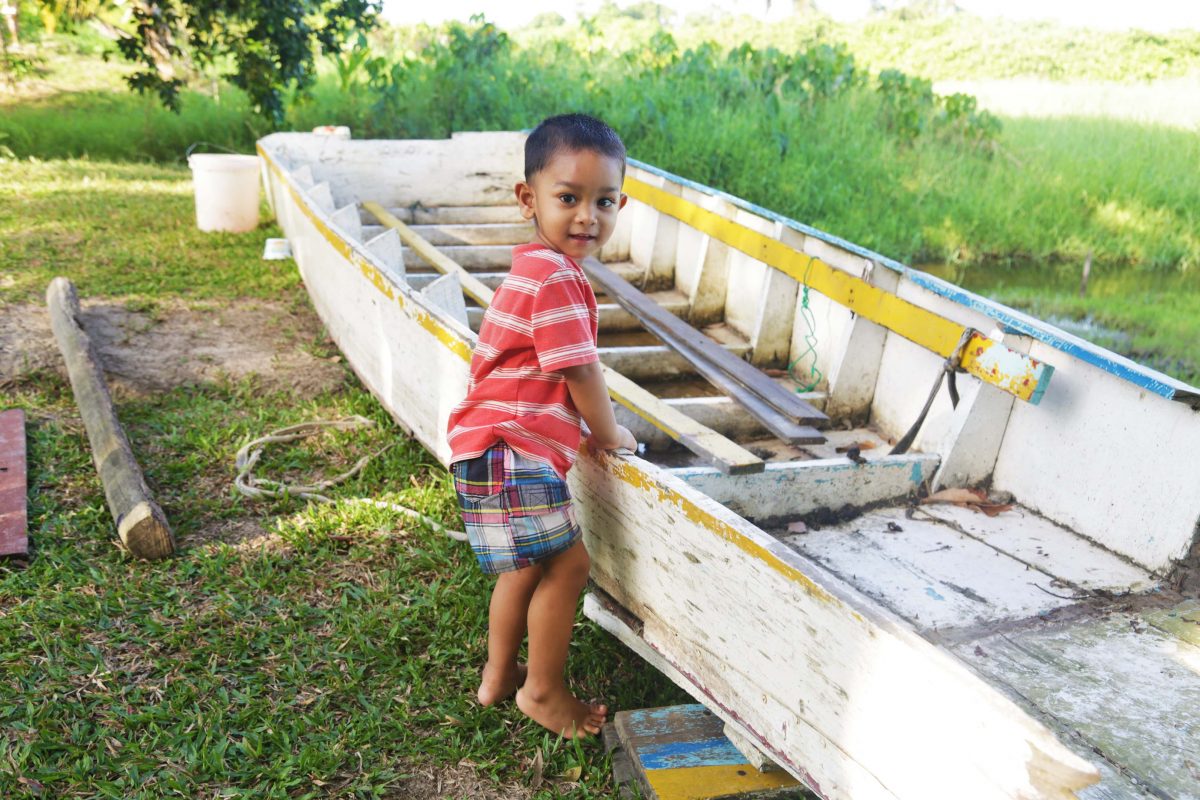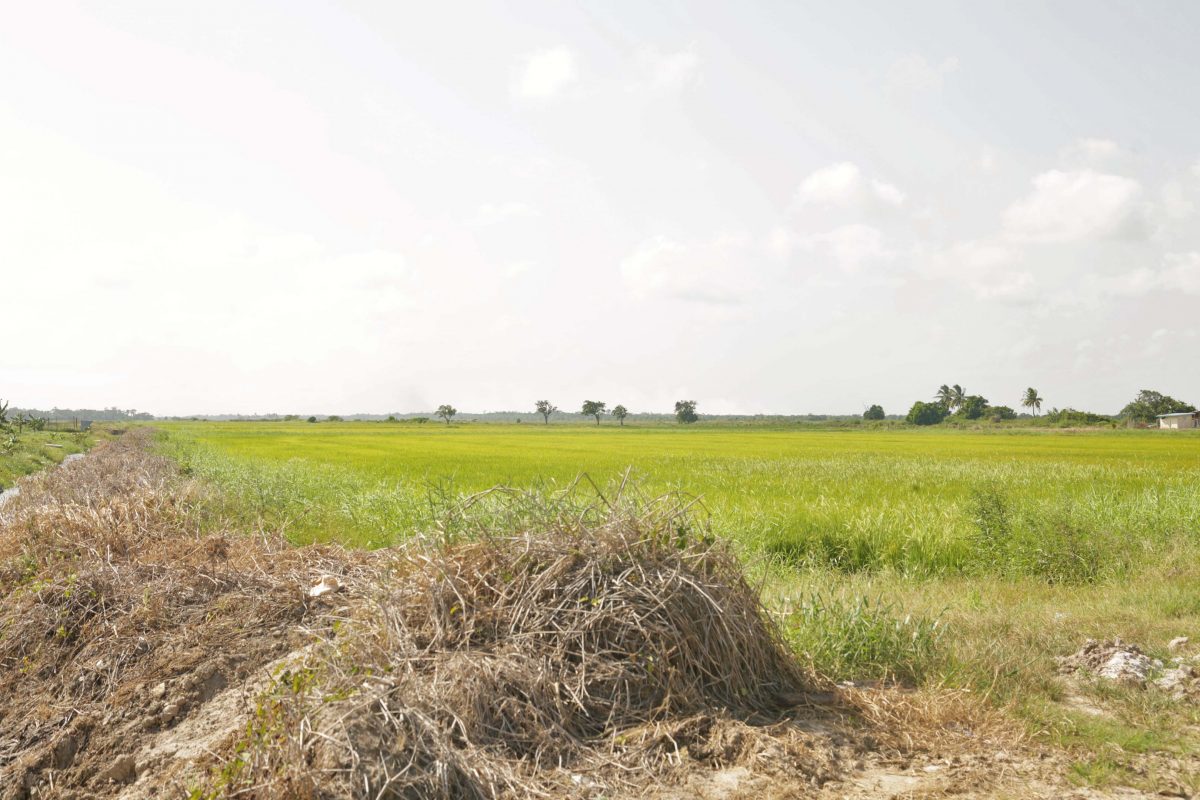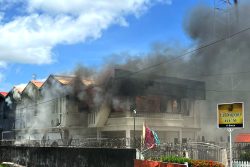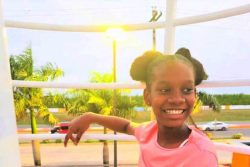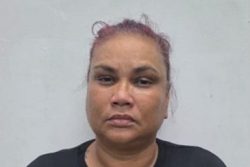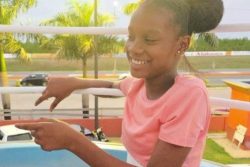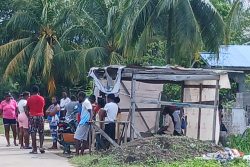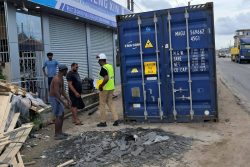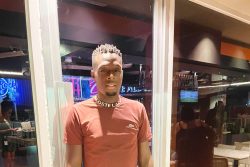Esau and Jacob is a scenic community that sits on the outskirts of Region Five, at the very end of the Mahaicony Branch Road. Though the village spans a large section of Branch Road, it is home to a population of just about 60 people.
Aside from the name being the same as the biblical twins in the Book of Genesis, it was rumoured that the village was owned by two brothers of African descent more than a century ago. But today, all of the residents are of Indian descent. Part of the village is situated on the other side of the river, where the now defunct Esau and Jacob Primary School once stood. That school once accommodated children from that side of the village as well as those living along the river. However, owing to a decline in the number of students, it was finally closed. The children who live on that side take a boat across the river then travel to the Mortice Primary School two villages away.
The main economic activity in the village is agriculture: rice, cash crops, poultry and cattle. Sometimes the men go fishing with their hooks, seines and cast nets in the canals in the back dam or the nearby Mahaicony River.
A trip into the village from the beginning of Mahaicony Branch Road comes at the cost of $200 per person by bus or $1,500 by taxi. Many persons prefer taking taxis as waiting for a bus to fill up can take up to an hour sometimes and buses are not readily available.
Not in Albouystown anymore…
A hassar pond marks the house of Bibi Sherene Ali, who sat in a hammock on her verandah. She hailed from Albouystown and made Esau and Jacob her home some 20 years ago. The difference between the two places, she said, is drastic. Albouystown is lively and comes alive even more at night, while Esau and Jacob is tranquil, and one is more likely to hear birdsong.
Esau and Jacob, Ali said, is for people who prefer a simple life, away from the hustle and bustle of the city. She likes that she has big enough space in her backyard for a kitchen garden. It is rare, she mentioned, that residents of Esau and Jacob would go to the markets for fruits and vegetables; almost everyone has a kitchen garden and they share among themselves. They do visit the market every now and again to purchase groceries and buy fish caught at sea. Among the fruit trees in Ali’s garden are cherry, guava, golden apple, mango, avocado, banana, orange, tangerine, lime and psidium. She also has plantain, thyme and other herbs and vegetables. Her yard is a hotspot for birds, but I could only recognise two species that paused to sit on the fence before they disappeared – a crow and one colloquially called ‘yellow plantain’. She said that she has doves nesting in her cherry tree.
Aside from her kitchen garden, Ali reared ducks for a while but stopped because they were being eaten by anacondas and caimans. Asked how she was sure that the ducks went missing because of the reptiles instead of being stolen, the woman said with much certainty that nobody in her area would do so.
Though Ali has come to love the way of life, she did not always feel this way about the village. In fact, coming from a ward of Georgetown meant growing up in the fast lane and Esau and Jacob seemed bleak when she first arrived.
“In Albouystown we used to cook on stove and after I come here, we had to find firewood to cook on the fireside,” she laughed.
A fence separates her yard from the river, from where she gets water for watering her plants, bathing, and washing. Years ago, she also used this water for cooking and drinking, but not today. Ali said the water is not as clean as it used to be because people dump garbage into it. The residents are anticipating getting potable water as the sides of the road have been recently dug up and pipelines put in.
The section of Branch Road where the village is situated is in such a deteriorated condition that drivers often refuse to travel all the way into the village. This includes the driver of the ‘school car’ who takes her daughter to and from school daily. As a result, the child’s older brother has to take her part of the way on his bicycle and pick her up again later.
At the very end of the village, is the Pure Harvest Inc Rice Mill. The mill provides employment for dozens of workers, some of whom were said to be Venezuelans.
Chandra Persaud has been a resident of Esau and Jacob for some 37 years. She relocated from her Airy Hall, Mahaicony home after getting married.
Persaud also lives along the river but has no fence between her yard and the water. The woman said she would always have to keep her eyes on her children to see that they did not go too close to the water’s edge.
Her family plants rice mainly, with flourishing rice fields just opposite as far as the eye can see.
A Hindu, she visits the Mortice Hindu Temple as there are no places of worship in her community.
The houses have no lot numbers so letters are addressed to the name of the person receiving and the name of the village. The mailman or woman has to be familiar with their names. For residents like Persaud, who live along the river, letters and bills arrive by boat. Currently delivery is done by a postwoman. Residents can also pay for a PO Box and uplift their mail whenever they visit the Mahaicony Post Office.
Persaud said she has never had issues with getting transportation to and from her home as her husband has always had a vehicle to take her where she needed to go. Her only issue for the longest while was the condition of the road as they incur a lot of expense maintaining the vehicle because of the condition of the road.
In addition to the road being fixed, she hopes that Esau and Jacob can have telephone service.
Unlike Ali, Persaud does not care for potable water. While Airy Hall had potable water during the time she lived there, she has learnt to use the water from the river for bathing, washing, flushing the toilet and rainwater for cooking. Her family buys drinking water from a truck that passes through the village.
Haven
Imagine a house situated on the neatest, greenest lawn overlooking the black calm waters of the Mahaicony River, a hammock tied between a laden mango tree and a tamarind tree and your boat nearby. This is Krishna Persaud’s haven.
He was born in Esau and Jacob and spent all 64 years of his life there. With such tranquility, why live anywhere else?
Although most villagers are into agriculture, Krishna Persaud is a clothes vendor and once a week he travels along the Mahaicony River to other villages to sell his clothes. This is a trade that has been in his family since he was a child and which he took up when he was 14.
Persaud shared that he comes from a big family. In fact, he grew up with a brother and nine sisters. Today his son and his family live with him.
Reminiscing about small days, Persaud said that he attended three primary schools. “This was because of the weather. Sometimes the road was bad,” he related. “One time, Wash Clothes [the village nearby] School closed down and I went to Esau and Jacob School. Then it had a flood in Esau and Jacob, and I went on to Mortice Primary.
“Back when I was little, we had some nice days. We make bush-cook cook-up and soup. Sometimes we adding meat from the duck, turkey, sheep… We used to mind we own stock. Sometimes we catch hassar, hurri and sunfish to add to the pot.”
He lives near the old rice mill, which now in ruins. The mill, he said, was opened during his early boyhood days. According to him, it functioned for more than half a century before it closed down and was headed by a man named Ben Persaud who was his father’s cousin. Ben Persaud has long since passed on and his relatives have mostly migrated from the village.
When people die, they are either cremated or buried in their backyard, Persaud shared. Most of the residents are Hindus and they cremate their dead either at the crematorium site at Good Hope or in Georgetown.
Asked about the earliest families to have lived here, Persaud gave a long list of Persauds, while noting that almost everyone is related.
For this resident the river water is used for all purposes, including drinking.
His biggest wish is for the road to be fixed. The man noted that sometime in the run up to the last elections the end section of Esau and Jacob was being fixed and millions of dollars were given to finish the project, yet not even a mile of road was constructed.
Persaud noted that he is in want of nothing more with such a comfortable life already, except for a better road in Esau and Jacob.
